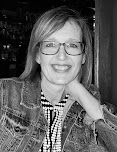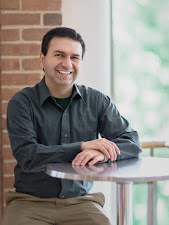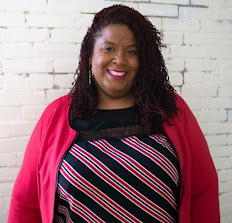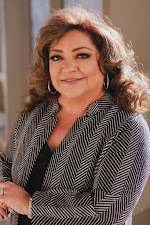ACT is collaborating with Opportunity@Work on a research project to better understand the experiences of the more than 70 million American workers who are Skilled Through Alternative Routes besides a bachelor’s degree, or STARs. This research is focused on ensuring that employers can realize the full potential of the labor market to meet their pressing needs for talent – and STARs can find jobs that fit their skills and experience. As the project gets underway, we asked Opportunity@Work CEO and Co-Founder Byron Auguste and Chief Engagement Officer Courtney Haynes to examine the barriers that STARs face and the untapped potential of skills-based hiring.
Why should organizations that care about workforce success be focused on STARs?
Half of U.S. workers are
STARs: They do not have bachelor’s degrees, but they do have skills. They’re skilled through alternative routes like military service, community college, workforce training, and being on the job. Today’s labor market problem is not a program problem, it’s a math problem. If organizations that care about workforce success don’t have a STARs talent strategy, they only have half of a talent strategy.
We hear from STARs all the time, both anecdotally and in our research: “I have the skills to do the job, but employers won’t even consider me – all because of a piece of paper.” Opportunity@Work’s analysis shows that more than 30 million STARs have the skills to do significantly higher-wage work. However, systemic barriers – such as job listings insisting on bachelor’s degrees instead of skills, manager misperceptions, and the false assumption that low wage equals low skill – all create a paper ceiling blocking STARs from higher-wage careers.
Employers screening out by degrees have blocked STARs from more than 7 million jobs, such as administrative assistant, medical technician, sales representative, and IT support. The paper ceiling has a disparate effect on Black and brown workers, military veterans, and rural Americans.
This is one of the greatest equity issues of our generation, but it’s a problem we can solve together. It begins with organizations making a commitment to "
Tear the Paper Ceiling." So far, more than 60 national corporate, technology, and nonprofit organizations, including ACT, have joined our coalition to adopt new systems and standards for skills-based hiring, and 18 states have committed to opening up 400,000 middle-class jobs to STARs.
Why is it necessary to better understand the experiences of STARs in labor markets, particularly in rural areas?
The majority of rural workers are STARs. By understanding STARs’ skills and their experiences, workforce leaders can see that today’s so-called skills gap is mostly an opportunity gap in disguise. Hiring based on someone’s history rather than skills and potential damages our economy and overlooks the talents of millions of STARs across the country.
To understand the full diversity of our country, particularly in rural areas, it’s critical to understand that STARs are:
- 66% of rural workers.
- 61% of Black workers.
- 55% of Hispanic workers.
- 61% of veteran workers.
- 53% of white workers.
- 31% of Asian American and Pacific Islander workers.
Employers, policymakers, and workforce organizations operating in rural areas should
understand that STARs are a critical talent category to fuel emerging industries such as
clean energy, semiconductor, data services, and healthcare. These industries must source
skill-proximate STARs for millions of jobs and apprenticeships.
How do we begin to correct the systemic problem of huge swaths of Americans not moving up into the higher-paying jobs that fit their skills and experience?
Employers must be incentivized to shift to skills-based hiring. Whereas traditional hiring practices use education, previous employers, years of experience, and job titles as indicators of a job candidate’s capabilities, skills-based hiring focuses on the specific skills needed to do the job.
More broadly, employers must recognize that skills, not pedigree, are the currency of the labor market. Bringing that clarity to talent management practices – from hiring, to training, performance management, and promotion – is the first step toward a more efficient and effective labor market.
Talk about a time when you were doing this work, on the ground, and saw how it directly affected people.
Amber is a STAR who gained her skills through multiple jobs – as a nurse’s aide, clinical technician, and pharmacy assistant, earning at most $14 per hour. While working, Amber studied with the nonprofit Merit America to earn a Google IT certification. Opportunity@Work’s Stellarworx platform matched her into a $22-an-hour technical help desk job at Iron Bow Technologies. Amber got a 57% raise and Iron Bow found a skilled employee.
Imagine repeating this story for 1 million in-demand jobs and growing U.S. industries accordingly.
Byron Auguste is the co-founder and CEO for Opportunity@Work – a social enterprise leveraging large-scale labor market analytics to shape business talent practices, technology platforms, and public policy.
Courtney Haynes is chief engagement officer at Opportunity@Work, where she advises and manages a team on strategy, program design, and execution – including leveraging and expanding STARs analytics, activating business and regional networks, as well as syncing opportunities for STARs across recent legislative opportunities and emerging industries.
Additional links:
Learn more about STARs and the collaboration between ACT and Opportunity@Work in a recent episode of the ACT
Ready for Work Podcast.
 In celebration of National School Counseling Week, Feb. 5-9, 2024 School Counselor of the Year Dr. Diana Virgil shared her insights with ACT on the importance of readiness and advocacy for education opportunities for all through a two-part blog series. Dr. Virgil is a school counselor for 346 students at Daleville High School in Alabama. She also serves as the coordinator for ACT’s American College Application Campaign in Daleville. ACT congratulates Dr. Virgil and celebrates all school counselors for everything they do to help each student discover and fulfill their potential.
In celebration of National School Counseling Week, Feb. 5-9, 2024 School Counselor of the Year Dr. Diana Virgil shared her insights with ACT on the importance of readiness and advocacy for education opportunities for all through a two-part blog series. Dr. Virgil is a school counselor for 346 students at Daleville High School in Alabama. She also serves as the coordinator for ACT’s American College Application Campaign in Daleville. ACT congratulates Dr. Virgil and celebrates all school counselors for everything they do to help each student discover and fulfill their potential.

.jpg)


.jpg)




.png)



.jpg)
.jpg)


.png)
